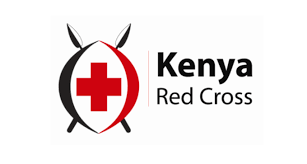Terms of Reference for Participatory Research on Violence against Women and Girls- ActionAid International Kenya
1. BACKGROUND
ActionAid International Kenya is among the leading anti-poverty agencies working directly with over one million poor and excluded people in 15 counties in Kenya. We have over 40 years of knowledge and experience working with people living in poverty and exclusion, and yet every day we are learning the solutions from the people we work with. ActionAid is un-apologetic in advancing women’s rights and ensuring that women living in poverty and exclusion are at the center of our work in Kenya. We work with Women, Children and Youth to claim and realize their constitutional rights using our Human Rights Based Approaches that entails, empowerment, solidarity and campaigning. Our Country Strategic Plan 2018-2028 ‘Our Rights or Justice’ adopted the innovative Partnerships Model to strategically invest in women, youth and children living in poverty and exclusion deliberately shifting power to them and their institutions. We commit to transfer skills, knowledge and resources to our primary partners, empowering them to drive their own development and change agenda while we keep learning from them to improve our programming.
In Kenya, according to the most recent national data (which was published in 2014), overall, about 41% of women reported having experienced physical or sexual violence from their husbands or partners in their lifetime. About two-fifths of those women reported physical injuries from the violence. There’s a lack of up-to-date national data on the prevalence of domestic violence in Kenya. But time-bound data shows how often the violence could be happening.
Gender based violence, and in particular Intimate Partner Violence (IPV), and the sexual abuse of both girls and boys is one of the most common forms of violence facing communities in Kenya. Gender-based violence directly impacts the stability and health of a family and community. In addition to direct experiences of violence, the fear or threat of gender-based violence further impacts mobility, productivity, national prosperity and regional stability. Despite relatively strong legal frameworks to address gender-based violence, including intimate partner violence, comprehensive national responses and provision of services for those who have experienced violence remains a challenge in Kenya.
The Convention on the Elimination of all forms of Discrimination Against Women (CEDAW) and in particular, General Recommendation Nineteen which speaks to violence against women and girls, encourages on-going efforts to build more stable and secure societies, which integrate strategies that support government and civil society. The support to government and civil society is necessary in the following ways:
- Implementation and monitoring of the existing legal frameworks to address gender-based violence (GBV) and intimate partner violence (IPV).
- Ensuring a strengthened response by the judicial and policing systems to address impunity.
- Realizing improved, coordinated response services; ensuring increased voice and leadership of women and girls in this process; and
- Significantly expanding social mobilization prevention efforts which address culturally sanctioned behaviors which result in GBV, including the active engagement of men and boys, as well as community and faith-based leaders.
The AAIK’s Zero Violence project, implemented in the three counties, focuses on:
- Community-based and nationally based dialogue on the root causes of gender-based violence, including the concepts of masculinity, which facilitate shifts in values, beliefs, behaviors and practices recognizing GBV as unacceptable. The discourse supported should target young women and men, adult women and men and local organizations.
- Community led efforts which aim at building a critical mass of individuals and groups engaged in activism against gender-based violence. This includes building the capacity of community support networks.
- Building girls and women’s social assets and safety nets e.g., through the provision of girl and women only spaces that provide social support and skills training, raise self-esteem and help cope with crisis.
- Social advocacy which develops momentum at national and community levels for the adoption/revision of key pieces of legislation, plans and policies to End Gender-Based Violence, including Sexual Violence and IPV.
- Increasing public education and awareness about rights and access to services in overcoming gender-based violence.
2. PURPOSE AND OBJECTIVES OF THE ASSIGNMENT
Limited evidence on successful and impactful prevention interventions to address VAWG exists globally. In Kenya, this type of evidence on successful prevention intervention programmes to address violence against women and girls is equally limited. Further, evidence generation relevant to hold the state and other duty bearers accountable and to deepen the understanding of what works for the prevention of VAWG in Kenya specifically the 3 counties at the level of community- based interventions, will in turn ensure that future GBV/VAWG prevention programming, is not only fit for purpose and results, but better focused and targeted and more responsive to partners ‘needs’, as well as donor concerns.
Objectives of the study:
The study is aimed at enhancing knowledge/learning on VAW/G, in the context of Kilifi and Garissa Counties, and LGBTIQ community, in Nairobi County, for the purposes of understanding the trends and reporting. The study will involve the development of series of structured surveys, but not limited to:
- Case studies from best practices under VAW/G‐targeted programs in Kenya and Internationally.
- Literature and relevant background documentation- International conventions; studies; best practices addressing VAW/G and Violence against the LGBTIQ groups.
- Review of legal documents, laws and policies related to women’s legal rights in Kenya concerning VAW/G and identify gaps in implementation of laws by the duty bearers and develop a policy brief spotting on policy gaps within the context of the Zero Violence project work.
- Behavioral studies, and information relevant to the context of VAW/G in Kenya.
- Based on the findings of the survey, provide concrete and practical recommendations to address VAW/G and LGBTIQ community in the country.
3. SCOPE OF WORK
The study is designed to be conducted in three counties Nairobi, Garissa and Kilifi. The study should include an assessment of the following:
- Types of violence and prevalence of violence against WAG & the LGBTIQ community in the context of the localities.
- The legal frameworks available and possible gaps in protection of WAG & the LGBTIQ community despite the laws being available as well as the policy gaps within the policies available.
- Role of cultural, religious and opinion leaders, government and other institutions and officer’s role in the fight against these forms of violence.
- Current strategies and interventions implemented in the 3 areas in fighting these types of violence and their level of effectiveness.
- Assess the effectiveness/viability of interventions aimed at achieving transformation of attitudes, values and beliefs related to gender-power relations in support of addressing violence against women, girls and LGBTIQ community.
- Develop a plan of the execution of the task on the outlined objectives above.
- Define clearly how to address the objectives to acquire required information based on appropriate sampling methodologies for proper analysis and synthesis guided by ActionAid’s Accountability Learning and Planning System principles.
- Identify information sources and locations independently in consultation with AAIK team.
- Establish clear roles of AAIK team members’ involvement in the assignment including development and operationalization of the research tools.
4. DELIVERABLES
Study report capturing specific issues in the 3 counties and emerging trends to inform policy development in form of case studies.
Develop key policy recommendations with regard to interventions being carried out by the three counties to eradicate the types of violence.
Provide a list of actors fighting VAW/G from the 3 counties and highlight their actions to inform movement building and networking amongst the actors.
The comparative study consultant is expected to:
- Develop a plan of the execution of the task on the outlined objectives above (in the scope of work).
- Define clearly how to address the objectives to acquire required information based on appropriate sampling methodologies for proper analysis and synthesis guided by ActionAid’s Accountability Learning and Planning System principles.
- Identify information sources and locations independently in consultation with AAIK team.
- Establish clear roles of AAIK team members’ involvement in the assignment including development and operationalization of the research tools.
- Outline of the report: While addressing the issues raised in the objectives of the comparative study in this TOR, the report must include an Executive Summary, Background, Objectives, Methods used, findings, opportunities, conclusion and recommendations.
- Debriefing, Dissemination and submission of Report.
- A debriefing to key staff members of AAIK and key stakeholders involved in the study to be provided after the completion of the study.
- Electronic Draft Report– shall cover both qualitative and quantitative aspects arising from the above study to be submitted.
- A final report compiled and submitted electronically integrating feedback and comments and in the agreed format.
5. DURATION OF THE STUDY
The study is expected to be completed within 25 working days (including travel, data collection and submitting the final report) from signing of the contract with the successful bidder/consultant.
Methodology
In order to conduct the survey on the key parameters, the following steps can be followed, but should not be limited to:
- Desk review on the situation of VAW/G and the LGBTIQ groups, particularly in the area of policy, behavior and protection.
- Quantitative data collection and analysis of information from different organizations and institutions working to support survivors of GBV.
- Key informant interviews (KIIs), stakeholder consultations, Government officials and non‐government institutions and other participatory methods used.
- Compose individual case studies through in‐depth discussions with survivors, institutions and organizations.
6. REPORTING REQUIREMENTS
The consultant will work under the overall supervision of the Programme Manager- Women Rights and Governance.
7. MINIMUM REQUIREMENTS
The consultant should meet the following criteria: Values / Guiding Principles:
- Respect for Diversity.
- Integrity.
- Professionalism.
Core Competencies:
Awareness and Sensitivity Regarding Gender Issues.
- Accountability.
- Creative Problem Solving.
- Effective Communication.
- Inclusive Collaboration.
- Stakeholder Engagement.
The ideal candidate for the Consultancy should bring a solid academic and professional background in the areas of social work, youth and community work, psychology, participatory education, training and facilitation, gender and development.
Functional Competencies
- Ability to support design, implementation, monitoring and evaluation of development related programmes and projects.
- Knowledge of Human Rights Based Approach and principles.
- Knowledge of human rights, gender and development principles and approaches.
8. REQUIRED SKILLS AND EXPERIENCE
The consultant should meet the following criteria:
Experience: The Lead Consultant/Researcher must be Senior Expert in leading and undertaking assessments/studies particularly on women, girls and youth related studies and evaluation of programs/projects. The Lead researcher should hold a minimum of master’s degree in social work, psychology, Behavioral Studies, Humanitarian studies, Economics, or related subject and practical knowledge. Qualifications must include:
- A minimum 5+ years in designing and implementing evaluations/surveys and correlation studies in humanitarian related studies and development studies, program evaluations etc.
- Demonstrated experience in conducting study in crises set up while working with a variety of stakeholders and beneficiaries including Governmental and Non-Governmental Organizations, community members and leaders, young women and men, and children.
- Proven track records in leading study teams and producing quality reports.
- Quantitative research and data analysis experience using statistical software’s (SPSS, Stata, SAS, CISPRO and others).
- Expertise in facilitating qualitative data collection and analyzing data using rigorous techniques/content analysis.
- Expertise in designing statistically significant & representative sampling strategies across multiple strata, including cluster sampling, stratified sampling techniques.
- Proven ability to work with community and Kenyan government stakeholders
- Excellent writing and presentation skills.
9. APPLICATION PROCEDURE:
The Technical Proposal must be submitted in English, should be limited to fifteen (15) pages and must contain the following:
- An expression of interest detailing their understanding of the assignment.
- Description of methodology, sampling strategy, approach to primary data collection and plan for data analysis.
- A capacity statement describing how they meet required qualifications and competencies including summary of similar studies previously conducted.
- Team Composition and Roles, including key members list with core qualifications and their role in the study (Attach the CVs of these key team members).
- Include a timeline of activities and level of effort required for each activity.
- Detail breakdown of consultancy fee.
- Two reference letters including previous relevant experience.
- Two samples of studies that have been produced by the applicant in soft copies (this will be treated as confidential and only used for the purposes of quality assurance).
Female research leaders/applicants are highly encouraged to apply.
10. APPLICATION
Send your developed overview of the assignment and mode of delivery template (complete with financial considerations) to Procurement.Kenya@actionaid.org Closing date is on 20th June 2022.








